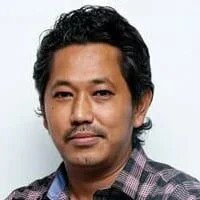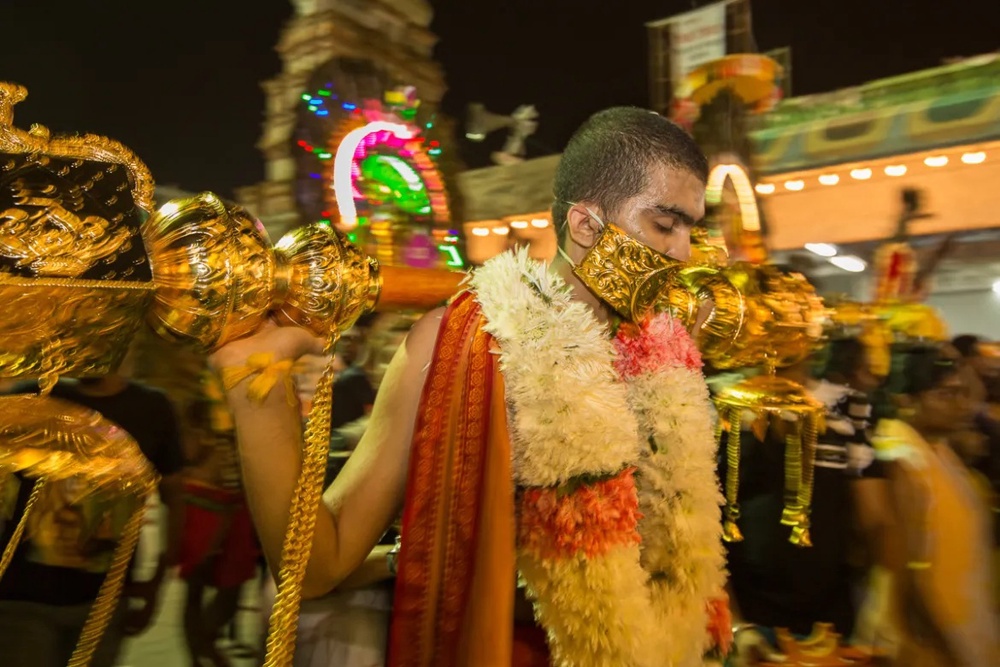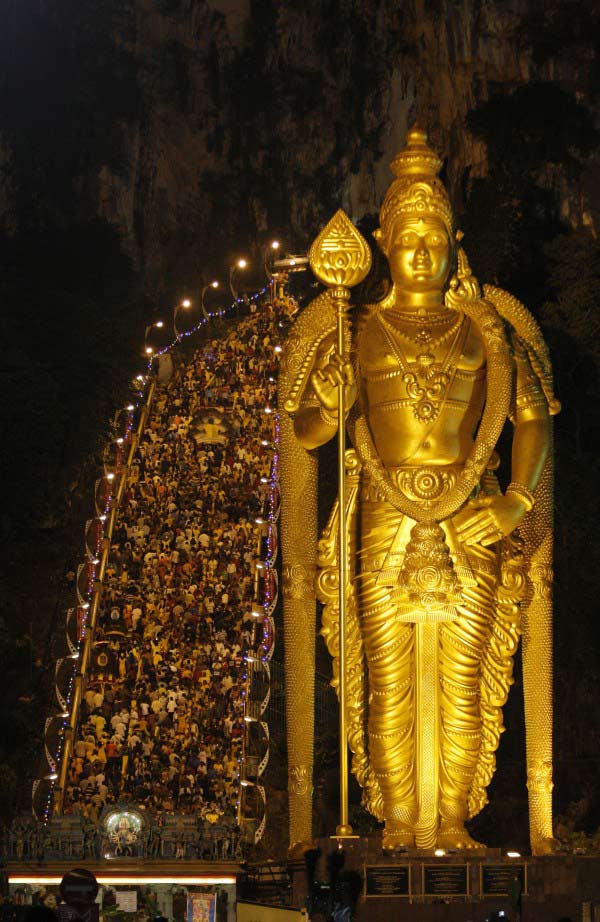
What the kavadi means: A secular interpretation
11 Apr 2025 • 9:00 AM MYT

TheRealNehruism
Writer. Seeker. Teacher
11 Apr 2025 • 9:00 AM MYT

TheRealNehruism
Writer. Seeker. Teacher

Image credit: Al Jazeera
After getting a lot of bad press recently, FMT has come out with a piece to explain the importance of Thaipusam and Kavadi to the Indian community.
Just last month, the Muslim preacher Zamri Vinoth came under fire for suggesting that to him, devotees carrying the Kavadi and chanting vel vel was nothing more than the actions of a possessed and drunken group of people.
It was perhaps to counter Zamri’s “Truth and facts” , that FMT took it upon itself to investigate the meaning of Kavadi from an etymological basis, before explaining its importance from a spiritual and sacred point of view.
If you want to know the significance of Kavadi from a sacred or spiritual context, maybe you should click here to read the FMT article.
As for this article, I am just going to try to explain the importance of the Kavadi from a secular perspective.
Indians, specifically Tamils, to whom the celebration of Thaipusam is of particular importance, were not always a race of labourers or coolies.
Today, many of us, especially in Malaysia, might identify with the working class, but historically, at the apex of our civilization, the Tamils were a mighty race that not only reigned at home, but reigned also in other polities around their home.
The fact that we were once a race of warriors and rulers is encoded in the such cultural celebration as Thaipusam, as can be seen in the act of carrying the Kavadi and the chanting of the mantra “vel vel”.
Thaipusam is a day that is dedicated to Murugan – who is not only known as the favorite god of the Tamils, but is also a God of War.

The Iconic Murugan statue of Batu Caves (Image credit: Murugan. org)
The reason that one of the major celebrations of the Tamils revolve around a God of War itself hints at the martial prowess and the military past of the Tamil race.
If you notice, much of the activities around Thaipusam, like marching for kilometers while being pierced in the flesh in multiple locations while carrying a kavadi (which comes from a Tamil that means “burden”) are activities that mimic the conditions of war.
It is also of no coincidence that much of Thaipusam is accompanied with the heart pounding beats of the urumi melam and chants of Vetrivel muruganukku or vel vel or kanthanukku arogara filling the air.
During military campaigns, an army will likely have to match for many kilometers, while suffering from bodily injuries and carrying a heavy load.
They will also likely be marching in their military campaign while being accompanied by heart thumping beats as the soldiers’ chant to military call and response in order to rouse themselves to battle.
Chants like Vetrivel muraganuku or vel vel or kanthanukku arogara all likely have a military origin.
Vel Vel literally means Spear! Spear!
Vetrivel muraganuku or kanthanukku arogara are all calls for the god of war to deliver victory or salvation, which is something that you will likely hear from the soldiers in an army as it undertakes a military campaign.
Personally, I believe that the Thaipusam festival likely originated in the muvender or "Three Kings" era –where three dynasties, namely the Chola, Chera and Pandya – from whom the entire Tamil race trace their origin - were ruling the Tamil world.
These three dynasties were continuously at war, with each other as well as surrounding kingdoms, for hundreds if not thousands of years of their existence.
The Thaipusam festivities probably came about when a muvender king achieved a great victory over all his enemies, and wished to dismantle his army and institute an era of peace in his reign.
The Thaipusam festival served both as a means for the king to acclimatise his soldiers back to civilian life while keeping themselves in a state of military preparedness, in case he requires them to serve in his army in the future.
The festival also probably had a therapeutic value, in the sense that it might be the manner that our ancient forefathers dealt with the post-traumatic stress of war. Today, if you cannot forget what you had experienced during war, you can probably seek the help of a psychologists or psychiatrists. In those days however, to deal with your war PTSD, what you would do is perhaps carry a kavadi once every year during Thaipusam, and lay down your troubles in the feet of the God of War, in manner that befits a warrior's worship of his god.
While to some people the sight of those who bear the kavadi during Thaipusam might look like the actions of someone that is “possessed” and “drunk”, if you were to enlarge your mind and imagine the state of a warrior or a soldier in the midst of battle, maybe you might be able to put into context what you are seeing better.
Nobody fully sane can fight a war – if you are not “possessed” or “drunk”, as Zamri Vinoth puts it, you will likely wet your pants and run to safety when tested by the crucible of war.
Later on, its martial origin likely took a back seat, as the sacred and and spiritual element of the festivities took centerstage , but originally, Thaipusam likely was a celebration of the Tamil identity as soldiers and warriors.
While the Tamil race today, especially in Malaysia, mostly identify as wage earners and as members of the working class, a festival like Thaipusam likely reminds us of a different past, when once we were a martial race.
After hundreds of years of decline and deterioration, infighting, defeat and colonization, we are today a pale version of who we once were, but once upon a time ago, in days that have long passed in a world that no longer exists, we were a glorious race who ruled and reigned.
The reason that one of the major celebrations of the Tamils revolve around a God of War itself hints at the martial prowess and the military past of the Tamil race.
If you notice, much of the activities around Thaipusam, like marching for kilometers while being pierced in the flesh in multiple locations while carrying a kavadi (which comes from a Tamil that means “burden”) are activities that mimic the conditions of war.
It is also of no coincidence that much of Thaipusam is accompanied with the heart pounding beats of the urumi melam and chants of Vetrivel muruganukku or vel vel or kanthanukku arogara filling the air.
During military campaigns, an army will likely have to match for many kilometers, while suffering from bodily injuries and carrying a heavy load.
They will also likely be marching in their military campaign while being accompanied by heart thumping beats as the soldiers’ chant to military call and response in order to rouse themselves to battle.
Chants like Vetrivel muraganuku or vel vel or kanthanukku arogara all likely have a military origin.
Vel Vel literally means Spear! Spear!
Vetrivel muraganuku or kanthanukku arogara are all calls for the god of war to deliver victory or salvation, which is something that you will likely hear from the soldiers in an army as it undertakes a military campaign.
Personally, I believe that the Thaipusam festival likely originated in the muvender or "Three Kings" era –where three dynasties, namely the Chola, Chera and Pandya – from whom the entire Tamil race trace their origin - were ruling the Tamil world.
These three dynasties were continuously at war, with each other as well as surrounding kingdoms, for hundreds if not thousands of years of their existence.
The Thaipusam festivities probably came about when a muvender king achieved a great victory over all his enemies, and wished to dismantle his army and institute an era of peace in his reign.
The Thaipusam festival served both as a means for the king to acclimatise his soldiers back to civilian life while keeping themselves in a state of military preparedness, in case he requires them to serve in his army in the future.
The festival also probably had a therapeutic value, in the sense that it might be the manner that our ancient forefathers dealt with the post-traumatic stress of war. Today, if you cannot forget what you had experienced during war, you can probably seek the help of a psychologists or psychiatrists. In those days however, to deal with your war PTSD, what you would do is perhaps carry a kavadi once every year during Thaipusam, and lay down your troubles in the feet of the God of War, in manner that befits a warrior's worship of his god.
While to some people the sight of those who bear the kavadi during Thaipusam might look like the actions of someone that is “possessed” and “drunk”, if you were to enlarge your mind and imagine the state of a warrior or a soldier in the midst of battle, maybe you might be able to put into context what you are seeing better.
Nobody fully sane can fight a war – if you are not “possessed” or “drunk”, as Zamri Vinoth puts it, you will likely wet your pants and run to safety when tested by the crucible of war.
Later on, its martial origin likely took a back seat, as the sacred and and spiritual element of the festivities took centerstage , but originally, Thaipusam likely was a celebration of the Tamil identity as soldiers and warriors.
While the Tamil race today, especially in Malaysia, mostly identify as wage earners and as members of the working class, a festival like Thaipusam likely reminds us of a different past, when once we were a martial race.
After hundreds of years of decline and deterioration, infighting, defeat and colonization, we are today a pale version of who we once were, but once upon a time ago, in days that have long passed in a world that no longer exists, we were a glorious race who ruled and reigned.
Sadly, no references given.
ReplyDelete